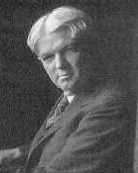While my mind is on education, let me continue with a little more of the history of education in America. In previous posts, I mentioned John Dewey and his baneful influence. Known as the Father of Progressive Education, Dewey introduced a number of new ideas: no eternal truths; let the child decide what he wants to learn; minimize booklearning and magnify experiences [which can often be divorced from substance]; socialization of children to fit into his vision of a socialist society.
Grand new ideas, weren’t they?
 I’ve also mentioned a couple of his disciples; another one I would like to note today is William Heard Kilpatrick. A colleague of Dewey’s at Columbia University’s Teachers College, Kilpatrick also served as president of the John Dewey Society. It has been estimated that he taught as many as 35,000 students during his tenure at Columbia, many of whom became leaders in this new approach to education throughout the country.
I’ve also mentioned a couple of his disciples; another one I would like to note today is William Heard Kilpatrick. A colleague of Dewey’s at Columbia University’s Teachers College, Kilpatrick also served as president of the John Dewey Society. It has been estimated that he taught as many as 35,000 students during his tenure at Columbia, many of whom became leaders in this new approach to education throughout the country.
Kilpatrick believed that man only existed in society, meaning that the collective was more significant than the individual. He disliked any diversity in education: there should be only one school system for the nation, he declared. To have more than one will lead to disunity. So much for private education.
The function of a school, according to Kilpatrick, was to teach methods of investigating truth, but not truth itself. He said we should teach children how to think, not what to think. If you read that last sentence and said, “yes, I agree with that,” you may not really understand the implications.
How can one learn how to “investigate” truth if no concept of truth exists? Teaching someone how to think sounds good, but that is merely a process. The substance of what we think is essential. There is truth and falsehood, but progressive education, the banner under which Kilpatrick stood, did not believe in any concept of right and wrong from God. Man was to figure it all out on his own.
I believe that real education begins with premises drawn from Biblical principles. Without firm foundations, the edifice collapses. Learning how to think is important, but you must start with some idea of right and wrong, truth and falsehood. Otherwise, you are trying to think in the midst of an intellectual and moral vacuum.
I make no apology for telling students that some things are right and others wrong, and that eternal truth does exist. They are then free, of course, to think through what I have said and determine if I am off-base in any way. I don’t have a problem with students asking questions if they are genuinely seeking to know and understand truth. But that desire must have a foundation first from which to question.
I realize that sets me apart from mainstream education. That’s fine. My first allegiance is to God and His truths. I firmly believe that students who are grounded in those truths have the potential to be the best thinkers.
